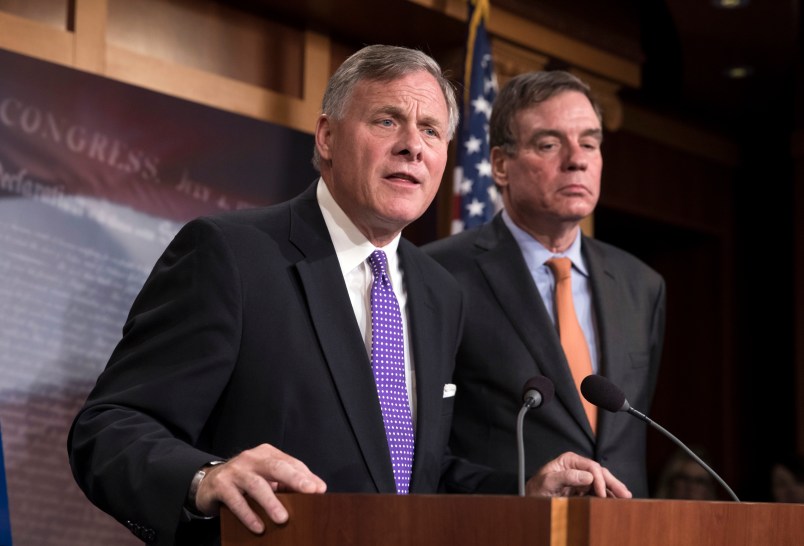The Republican-led Senate Intelligence Committee backed the Intelligence Community’s handling of its assessment, under President Obama, that Russia interfered with the 2016 election with the aim of boosting then-candidate Donald Trump.
The committee released a highly-redacted report on its review of that assessment Tuesday. The review found that the assessment, assembled at the end of the Obama administration, was a “sound intelligence product” and that the committee was consistently told that the intelligence community analysts “were under no politically motivated pressure to reach specific conclusions.”
“Every witness interviewed by the Committee stated that he or she saw no attempts or pressure to politicize the findings,” the Senate Intel report said.
The committee’s conclusions come as Attorney General Bill Barr — with the help of U.S. Attorney John Durham, a prosecutor Barr himself tapped — has launched his own review of how the intelligence community came to its conclusions about Russia’s 2016 election interference.
President Trump has also bashed leaders of the intelligence community, while claiming the entire investigation into Russian election meddling was a “hoax” designed to take him down.
The Senate Intel committee’s report on its own examination of the approach of the various U.S. intelligence agencies is the fourth report it’s released about the Russian election meddling issue. Its previous reports looked at efforts by Russia to influence the 2016 campaign via social media and Russia’s attempts to interfere with election infrastructure, as well as the actions the Obama administration took to respond to the attack.
In a statement with the release of the latest report, Senate Intelligence Committee Chairman Richard Burr (R-NC) said that the committee “found no reason to dispute the Intelligence Community’s conclusions.”
The overwhelming majority of the report itself remains classified. But the spare unredacted details shed some light on what the committee found about the intelligence community’s use of the so-called Steele dossier. The dossier was a collection of claims, some of them now debunked, about Trump-Russia connections that were collected by ex-British spy Christopher Steele, whose 2016 sleuthing was financed in part by the Democratic National Committee.
How the U.S. government handled the dossier has been the most controversial aspect of the Russia investigation, and the dossier has fueled some of most outlandish conspiracy theories put forward by Trump and his allies.
The report noted that the Steele materials were included only in an appendix to the Intelligence Community Assessment (ICA). While the source of financing for the material was not noted in the appendix, “The Committee found no evidence that analysts working on the ICA were aware of the political provenance of the Steele material.”
“All individuals the Committee interviewed stated that the Steele material did not in any way inform the analysis in the ICA — including the key judgments — because it was unverified information and had not been disseminated as serialized intelligence reporting,” the Senate report said.
Read the report below:



